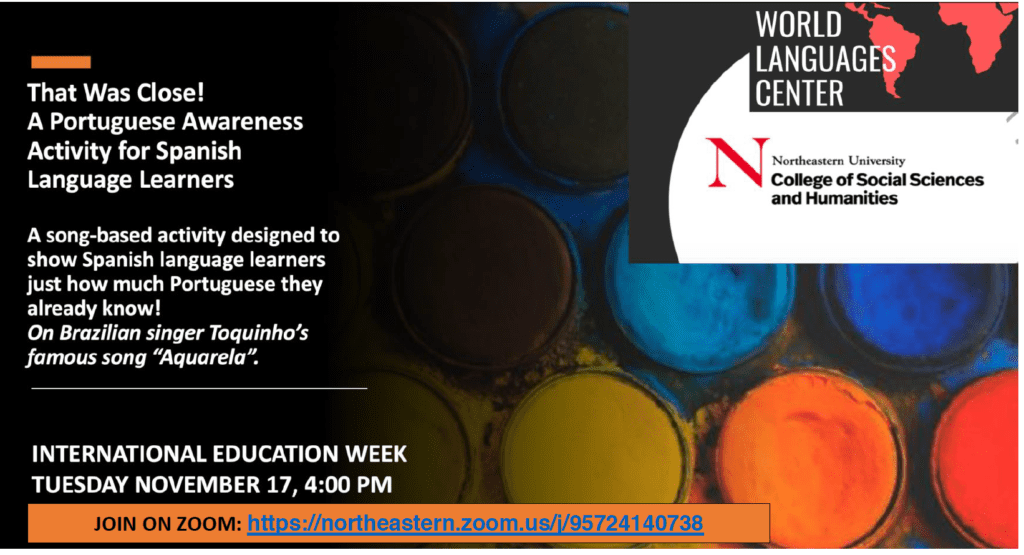Portuguese
Bem-vindos a Northeastern!
Spoken by over a quarter billion speakers across five continents, Portuguese is a true global language. Beyond Portugal and Brazil, Portuguese is spoken officially in nations as diverse as Angola, Cape Verde and East Timor. When one considers the Portuguese-speaking communities of Macau, China, and Goa, India, among others, the language emerges as a prime example of a multi-cultural linguistic solidarity of remarkable size and promise. Equally rich are the cultural manifestations of the Portuguese-speaking world, from Brazilian samba to Portuguese fado, including artists of international renown, such as Chico Buarque, Cesária Évora and Amália Rodrigues. Writers like João Guimarães Rosa, author of The Devil to Pay in the Backlands (Grande Sertão: Veredas), Fernando Pessoa, Clarice Lispector and Mário de Andrade have made revolutionary contributions to the world of art and literature. Brazil, in particular, is the result of a history of American-European encounter that finds multiple points in common with the U.S. experience, and works such as those by film director Glauber Rocha, which explore issues of national identity in Brazil’s multi-racial society, can be extremely enlightening in conversation with analogous North American examinations. With human, natural and cultural assets of crucial importance to the future of our transnational society, the Portuguese-speaking world is an indispensable partner in any negotiation on global business, politics, social justice, and environmentalism.
Why Study Portuguese?
Números
“According to José Luís Carneiro, Portugal’s secretary of state for Portuguese communities abroad, ‘By 2060, the Portuguese language is predicted to be spoken by 380 million people, and by the end of the century that number could increase to 500 million Portuguese speakers worldwide.’”
Extensão
Lusophone influence is present in Europe, South America, Africa, Asia, and right here in Boston with large populations of Brazilians and Portuguese.
The Portuguese language and literature has seen a rise in popular, even in China!
Similaridades
If you already speak a Romance language, such as Spanish, French, or Italian, then you will have an advantage learning Portuguese.
Course Offerings
If you have had prior training in Portuguese before entering Northeastern University, please contact the Program Coordinator, Prof. Boris Yelin at b.yelin@northeastern.edu for a placement test.
Elementary courses:
PORT 1101 – Elementary Portuguese 1 / PORT 1501 – Accelerated Elementary Portuguese 1
PORT 1102 – Elementary Portuguese 2
Intermediate courses:
PORT 2101 – Intermediate Portuguese 1
PORT 2102 – Intermediate Portuguese 2
Course Schedule
Please visit the Office of the Registrar’s website for a comprehensive list of current course offerings.
Learn More
